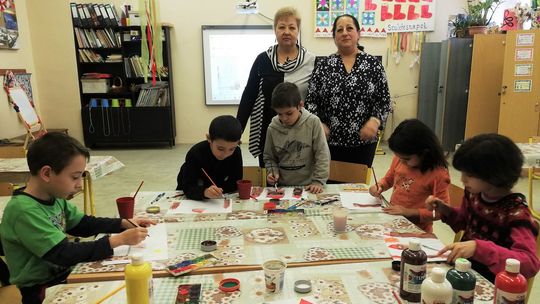“Survivor Marian Turski warned: “Auschwitz did not fall from the sky”. The survivor Halina Birenbaum wrote: “It’s not rain, it’s people”. Auschwitz arose out of lust for power and megalomania. Paradoxically, it was the quintessence of the great progress, industrialization of the 20th century. The camp was thought out, planned, designed, sketched, drawn and expanded. Architects, planners, designers and surveyors worked on it,” said Cywiński, the director of the Auschwitz Museum.
The director of the museum recalled that in this place “German Nazis dehumanized, humiliated and murdered Jews, Poles, Roma, Soviet prisoners of war and many others.” “Here are the authentic remnants of the misalliance of Viennese Romanticism and Prussian Positivism. We see how fragile our civilization is. Our world turned out to be fragile in the era of murderous anti-Semitism, uebermensch ideology and the desire for the so-called Lebensraum. Our world is still fragile.
Piotr Cywiński, addressing former prisoners, recalled that they had gone through “the darkest path of war”. “And it’s hard for us to stand here. Harder than previous years. War first violates treaties, then borders, then people. Civilian victims, dehumanized, intimidated, humiliated, do not die accidentally. They are hostages of this wartime megalomania. Warsaw Wola, Zamojszczyzna, Oradour and Lidice today are called Bucza, Irpień, Hostomel, Mariupol and Donetsk,” he stressed.
The director of the Memorial pointed out that today ‘written in Russian’ is similar to the one from over 78 years ago, sick megalomania, lust for power. The myths about uniqueness, greatness and primacy sound similar.
As Cywiński said, “the period that we used to call the post-war era is clearly ending before our eyes.” “For many decades, the post-war period looked different in the east than in the west of Europe. But on the one hand and on the other hand, our thoughts and identity were held together by the overriding awareness of the post-war period. And here it is today, it all passes. Again, innocent people are dying en masse in Europe. Russia, unable to seize Ukraine, decided to destroy it. We see it every day, even now – standing here. So it’s hard to stay here today,” he said.
The director of the Auschwitz Museum appealed that “we, the free people, should be able to behave differently today”. “To be silent is to give voice to the perpetrators. To remain neutral means to reach out to the rapist. Remaining indifferent is nothing more than giving permission to murderers,” he stressed.
The director emphasized that today, in front of our eyes, memory tells us: I’m checking! “Today you can see very clearly whose doors are opening and whose doors are closed. (…) Let us be aware that our every gesture counts just as every lack of a gesture counts. There is a choice in everything. Today the time has come again for necessary human choices. And only in memory can we find the keys that will guide us through our own choices,” he said.
The director’s speech was the final word at the main anniversary ceremony. Former prisoners spoke in front of him: Eva Umlauf, a Jewess, and a Pole, Zdzisława Włodarczyk.
The Germans established the Auschwitz camp in 1940 to imprison Poles there. Auschwitz II-Birkenau was established two years later. It became a place of extermination of Jews. There was also a network of sub-camps in the camp complex. In Auschwitz, the Germans killed at least 1.1 million people, mainly Jews, as well as Poles, Roma, Soviet prisoners of war and people of other nationalities.
On January 27, 1945, Red Army soldiers opened the gates of the camp. Extremely exhausted prisoners, of whom there were still about 7,000. – including half a thousand children – greeted them as liberators.
